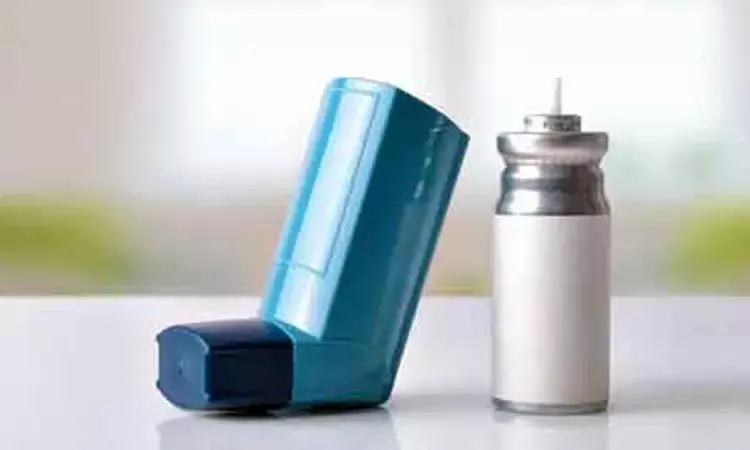- Home
- Medical news & Guidelines
- Anesthesiology
- Cardiology and CTVS
- Critical Care
- Dentistry
- Dermatology
- Diabetes and Endocrinology
- ENT
- Gastroenterology
- Medicine
- Nephrology
- Neurology
- Obstretics-Gynaecology
- Oncology
- Ophthalmology
- Orthopaedics
- Pediatrics-Neonatology
- Psychiatry
- Pulmonology
- Radiology
- Surgery
- Urology
- Laboratory Medicine
- Diet
- Nursing
- Paramedical
- Physiotherapy
- Health news
- Fact Check
- Bone Health Fact Check
- Brain Health Fact Check
- Cancer Related Fact Check
- Child Care Fact Check
- Dental and oral health fact check
- Diabetes and metabolic health fact check
- Diet and Nutrition Fact Check
- Eye and ENT Care Fact Check
- Fitness fact check
- Gut health fact check
- Heart health fact check
- Kidney health fact check
- Medical education fact check
- Men's health fact check
- Respiratory fact check
- Skin and hair care fact check
- Vaccine and Immunization fact check
- Women's health fact check
- AYUSH
- State News
- Andaman and Nicobar Islands
- Andhra Pradesh
- Arunachal Pradesh
- Assam
- Bihar
- Chandigarh
- Chattisgarh
- Dadra and Nagar Haveli
- Daman and Diu
- Delhi
- Goa
- Gujarat
- Haryana
- Himachal Pradesh
- Jammu & Kashmir
- Jharkhand
- Karnataka
- Kerala
- Ladakh
- Lakshadweep
- Madhya Pradesh
- Maharashtra
- Manipur
- Meghalaya
- Mizoram
- Nagaland
- Odisha
- Puducherry
- Punjab
- Rajasthan
- Sikkim
- Tamil Nadu
- Telangana
- Tripura
- Uttar Pradesh
- Uttrakhand
- West Bengal
- Medical Education
- Industry
'Smart' asthma inhaler sensors improve pediatric asthma control

CHICAGO - Sensor-based inhalers integrated into health care providers' clinical workflows may help improve medication adherence and support children with asthma - and their families - to more effectively manage this condition, according to a new Northwestern and Lurie Children's study published in Pediatrics. The study, developed in collaboration with United Health Group, showed the use of sensor-based inhaler monitoring may help improve asthma symptom control and caregiver quality of life.
Connected inhalers, which use Bluetooth sensors that attach to participants' asthma inhalers to detect medication use and share the data with physicians, may promote adherence to recommended controller medication use and proactively detect worsening of asthma symptoms, according to the study. As a result, this may enable health care providers to intervene more rapidly--before patients become critically ill--and improve communication between patients, caregivers and asthma care providers.
"Emerging connected technologies can help improve patient health, with this randomized-controlled clinical trial showing that pediatric asthma patients with access to inhaler sensors report better asthma control and quality of life than patients who only received a standardized asthma education curriculum," said study lead Dr. Ruchi Gupta, professor of pediatrics at Northwestern University Feinberg School of Medicine, physician at Ann & Robert H. Lurie Children's Hospital of Chicago and the Director of the Center for Food Allergy & Asthma Research (CFAAR).
Children participating in the study were evaluated based on an Asthma Control Test questionnaire, which measured their asthma symptom control on a scale from 0 (poor control) to 27 (well-controlled). Average scores among the intervention increased by 10.1% over the course of the study, with the greatest improvements among non-Hispanic Black participants.
Caregivers who participated in the study were assessed based on a Pediatric Asthma Caregiver's Quality of Life questionnaire, measuring how the sensor-based monitoring adherence affected their day-to-day involvement. Caregivers reported improvement to their quality of life after the first month of the study, which was sustained through the year-long trial, due to greater ease of asthma management.
"This study is another clear example that digital health is here to stay, as it allows for us to stay connected to patients living with chronic disease, provide a level of automated watchfulness, and intercept disease in a timely manner," said Deneen Vojta, MD, Chief Physician Executive for Optum Labs, part of UnitedHealth Group. "This is a terrific example of moving from the best care out there today to the best care possible."
More than 25 million Americans currently have asthma, most of whom are prescribed inhalers designed to prevent and treat asthma attacks. With appropriate management, most asthma patients can control their disease and live symptom-free. However, for patients with moderate-to severe disease, this generally requires daily use of "controller" medications -- typically an inhaled corticosteroid -- as well as occasional use of "rescue" medications (i.e. albuterol).
While previous studies have also explored the feasibility and effectiveness of using these sensor-based mobile interventions to improve asthma management, this study was the first to systematically evaluate its effectiveness in a large, racially/ethnically and socioeconomically diverse sample of children.
All 252 children enrolled in this study had moderate/persistent asthma and were recruited from five clinics (three primary care, one allergy and one pulmonary). Participants were 24% non-Hispanic White, 23% non-Hispanic Black and 40% Hispanic, while 60% were on public insurance. The study lasted 12 months and included assessment at enrollment, three months, six months, nine months, and one year.
https://pediatrics.aappublications.org/content/147/1/e20201330
Hina Zahid Joined Medical Dialogue in 2017 with a passion to work as a Reporter. She coordinates with various national and international journals and association and covers all the stories related to Medical guidelines, Medical Journals, rare medical surgeries as well as all the updates in the medical field. Email: editorial@medicaldialogues.in. Contact no. 011-43720751
Dr Kamal Kant Kohli-MBBS, DTCD- a chest specialist with more than 30 years of practice and a flair for writing clinical articles, Dr Kamal Kant Kohli joined Medical Dialogues as a Chief Editor of Medical News. Besides writing articles, as an editor, he proofreads and verifies all the medical content published on Medical Dialogues including those coming from journals, studies,medical conferences,guidelines etc. Email: drkohli@medicaldialogues.in. Contact no. 011-43720751


